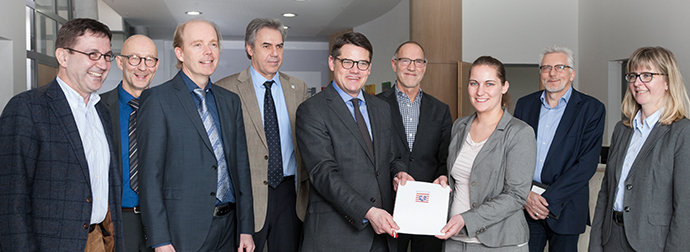
Recent news in Food & Feed Analysis
- Home
- /
- Improving allergen analysis: Research...
Improving allergen analysis: Research project receives subsidies

Together with the Fresenius University and the Geisenheim University, R-Biopharm is developing an improved ELISA method for the detection of food allergens. The federal state of Hesse is providing financial support for the project – granting funds of around 330,000 euros.
It is a project which could make the lives of many allergic people safer: Together with scientists from Fresenius University in Idstein and Geisenheim University, R-Biopharm is working on the development of improved test methods for the detection of food allergens. Particularly nuts can cause severe allergic reactions. A product containing even small amounts of nuts without labeling can be fatal for allergy sufferers. Food products are therefore regularly tested for allergenic components by the food industry as well as commercial and public laboratories. The most widely used method for allergen analysis is an antibody-based assay such as ELISA. However, the tests have their limits, as for instance nuts can hardly be detected in processed foods (baked or roasted).
Thus, the objective of the project is to develop an improved method for the detection of nuts in order to increase safety for allergic people. The concrete idea is to develop a new ELISA test for the detection of hazelnut and almond. For this cause, R-Biopharm and its project partners have received funds from the Hessian LOEWE program (federal offensive to develop scientific and economic excellence). On Wednesday, the Hessian Minister of Science, Boris Rhein, visited R-Biopharm in Darmstadt in order to hand the subsidy notification.
The Hessian research promotion program LOEWE has been supporting outstanding scientific projects since 2008, including many collaborative projects with universities, research institutes and companies. In addition to promoting innovations and strengthening the region’s economy, the program also focuses on bringing together partners with different competencies – just like the now funded project lead by R-Biopharm, which competed successfully against numerous other projects. Given the far-reaching experiences of the involved project partners in the field of allergen analysis and food processing, nothing should stand in the way of developing an improved method for the detection of nuts.
The project will run until the end of 2018 – then, allergic people can hope for better tests and safer food.

